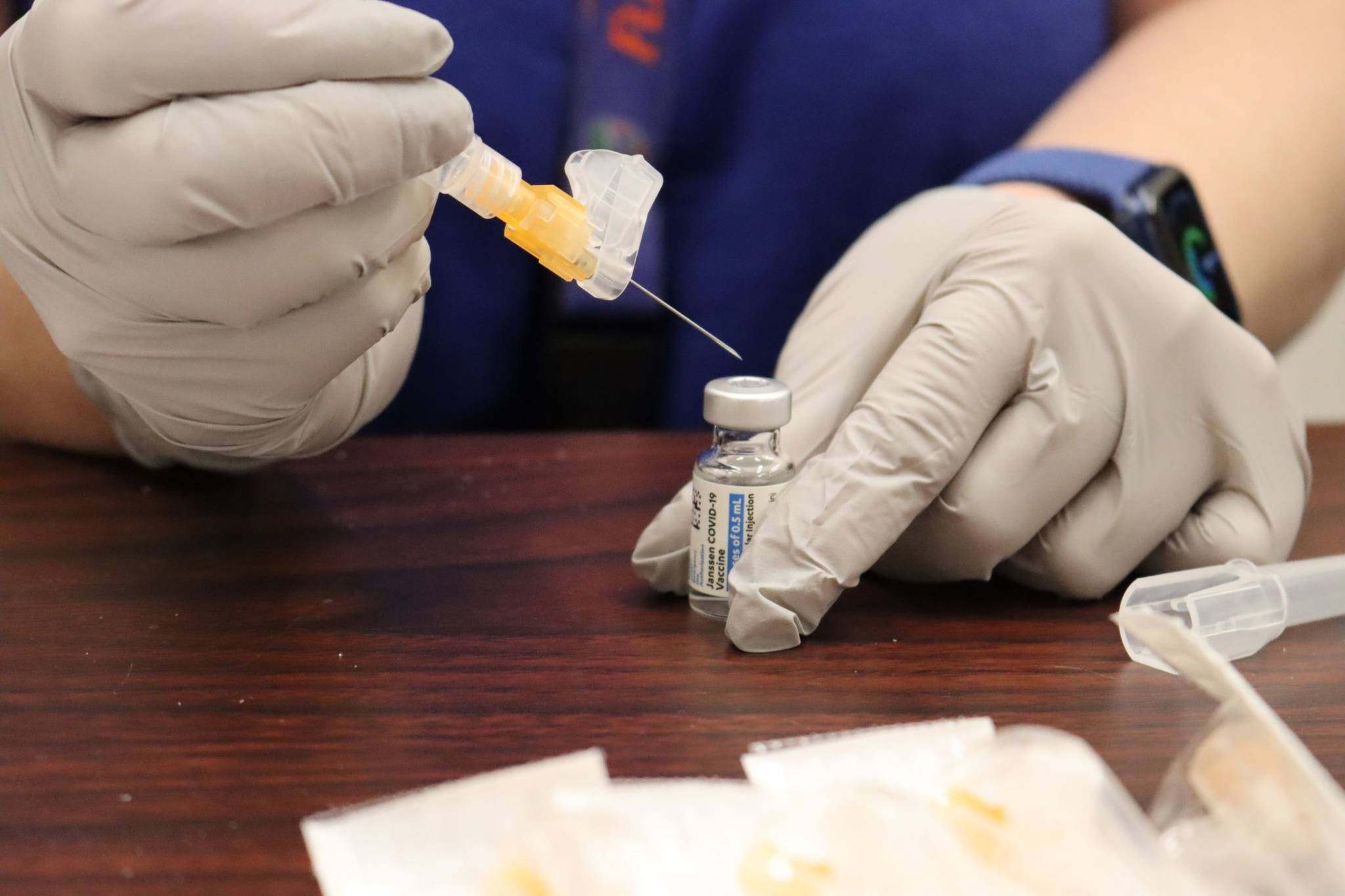As vaccines for COVID-19 become more readily available some are voicing concern about the shots becoming mandatory, but without an actual mandate on the books, it’s difficult to say what kind of exemptions are allowable.
Republican lawmakers offered a series of amendments last week aimed at protecting a person’s right to refuse a COVID-19 vaccine should a government or private company make them mandatory. The amendments, proposed during the final vote on a bill to extend the state’s COVID-19 disaster declaration, would have made it illegal to require vaccines for employees or airline passengers.
But without an actual mandate, it’s hard to say if those prohibitions would stand up to existing law. According to recent guidance from the Equal Employment Opportunity Commission, if no reasonable accommodation can be made for an employee requesting a religious exemption, that employee can lawfully be fired.
Gov. Mike Dunleavy has said repeatedly the vaccine will not be mandated statewide for the public and state employees will also not be required to receive the vaccine. Republican lawmakers; however, expressed concern people who refuse to receive a coronavirus vaccine may become the target of discrimination.
Jake Metcalfe, CEO of the Alaska State Employees Association, said in an email no member had yet been mandated to receive a vaccine. But the union is ready to defend the rights of its members if the circumstances are right, Metcalfe said.
“ASEA has a duty of fair representation to the employees we represent. We will defend a member if the employer has violated our contract or the member’s due process rights,” Metcalfe said in an email. “That determination is made after we do a complete investigation of the facts and circumstances surrounding the member’s case.”
Paul Miranda, president of the Alaska Professional Fire Fighters Association made similar statements. Miranda said in a phone interview Tuesday he wasn’t aware of any members being required to take the vaccine, but the union’s lawyers have discussed the issue.
But because the COVID-19 vaccines themselves are so new, Miranda said the matter was still in something of a gray area.
“I’m not aware of anywhere yet that has had a lawsuit related to this issue,” Miranda said. “I don’t know that’s been totally fleshed out yet.”
[Lawmakers clash on how to manage pandemic]
Unions have a legal obligation to protect the rights of their workers, Miranda said, and should vaccine mandates become an issue the union would advocate for its members’ rights should the situation warrant it. The local union’s attorneys had consulted with the larger International Association of Fire Fighters legal team on the matter, Miranda said.
Both Miranda and Metcalfe said members were being encouraged to receive the vaccine, and Miranda said fire departments across the state reported voluntary vaccination rates of 80% or higher. But amendments from House Republicans would have made employers and some private businesses potentially liable for damages or discrimination lawsuits should they require vaccines.
An amendment from Rep. Chris Kurka, R-Wasilla, would have made COVID-19 vaccination status as protected alongside race, religion and sex in discrimination cases. Rep. David Eastman, R-Wasilla, entered an amendment that would have made employers liable for potential health damages resulting from an employee receiving the vaccine if that employer incentivizes, induces or encourages receiving the vaccine.
Another amendment from Eastman would have made transportation companies such as airlines similarly legally liable for potential health damages should they require vaccines for travel.
Some cruise ship companies, such as Norwegian Cruise Line and Princess Cruises have said they’ll require vaccines for passengers, while others are only requiring testing. Cruise industry group Cruise Lines International Association on its website does not state companies won’t require vaccines and cruise lines will change their policies in response to the evolution of the pandemic.
In an email, an Alaska Airlines spokesperson declined to comment
All of those amendments failed but received broad support from House Republicans in the minority. During debate on the floor, Republican lawmakers expressed concern encouraging employees to receive the vaccine could easily become coercion. Florida Gov. Ron DeSantis issued an executive order in that state prohibiting businesses from requiring proof of vaccinations even as companies, including cruise lines headquartered in Miami, have said all staff and passengers must be vaccinated in order to sail.
At an April 6, news conference, Dunleavy said he was concerned about businesses requiring vaccines for staff and customers but at the same time defended the practice.
“If there are businesses and there may very well be some businesses that because of the nature of their business, their service, feels that that’s appropriate, that’s a discussion that they’re going to have to have internally,” Dunleavy said.
Several large companies such as Fred Meyer, Safeway and Costco have all offered incentives to employees to receive a vaccine.
Both ASEA and APFFA don’t have official COVID-19 vaccine policies, Metcalfe and Miranda said, largely because there were no instances where the union had to take action. When it comes to exemptions, Metcalfe said he encouraged the state to work with unions to develop a policy rather than issue mandates, which can help to avoid litigation.
• Contact reporter Peter Segall at psegall@juneauempire.com. Follow him on Twitter at @SegallJnuEmpire.

